
I’ve had something on the tip of my tongue and burning a hole in my brain for years now and it seems like it’s finally the time to let it out. This blog post won’t make me any friends and I am totally okay with that. Dyslexia is not a gift. It just isn’t.
Dyslexia is Not a Gift
Students with dyslexia are not going to be successful, creative geniuses because they are dyslexic. They are going to be successful, creative geniuses because they are resilient, have support from community and family, are smart, and like the rest of us, found something they love. The books written about those who are uber successful have super supportive families or someone in their life who took an interest. Or they had the means. That is not the norm, that is the upper middle class view of dyslexia. It promotes a false narrative to all those kids who don’t have the support they need, or the resources. These are the kids who are sitting next to the kid I am advocating for, you know, the kids who don’t have an advocate.
Here’s the thing, I’ve worked with many, many students, adults and children, over the last twenty years and NOT ONE of them thought or thinks dyslexia is a gift. The adults I worked with in adult literacy didn’t become movie directors, billionaires, artists or famous actors. They became under employed, under educated and sometimes incarcerated adults. They take a hit to their self-esteem and a hit to their ability to be self-sufficient. They cried in my office, they didn’t rejoice. The vast majority of them came from low socio-economic homes with little support and many times with parents who also didn’t have the literacy skills needed to excel. They are fearful and anxious that their kids will also suffer in school, and yes they will use the word suffer.
Look, I’m out there, I have had my boots on the ground for over 20 years. You know what I see? I see parents crying in IEP meetings. I train teachers flabbergasted that they don’t already know what I am teaching them. I see kids developing depression, anxiety, behavior problems and more. They would all give back their dyslexia if given the chance.
My perspective is built on my experience with multitudes of people, not a select few. I have worked in low socioeconomic neighborhoods and don’t even get me started on the kids for whom English is not their first language. I’m working with these students, I’m sitting in countless IEPs, I’m training teachers, and if we want to be taken seriously we have to continue to describe the toll of a failure to remediate and a failure to identify dyslexia really takes on a student and their family.
I have put my money where my mouth is by going to my state legislature and going to Capitol Hill. I know that promoting a dyslexia sperm bank hurts those of who try to be taken seriously by policy makers. We have to remember that his message is largely begin supported by those with the resources to help their children or themselves. But I’m here to tell you, it’s not reality and it’s far beyond the your neighborhood. So, stop it.

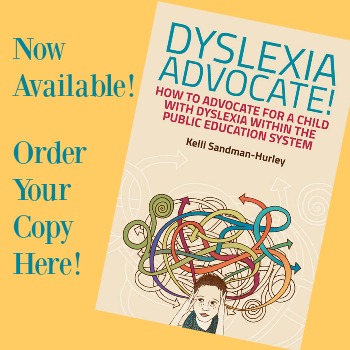
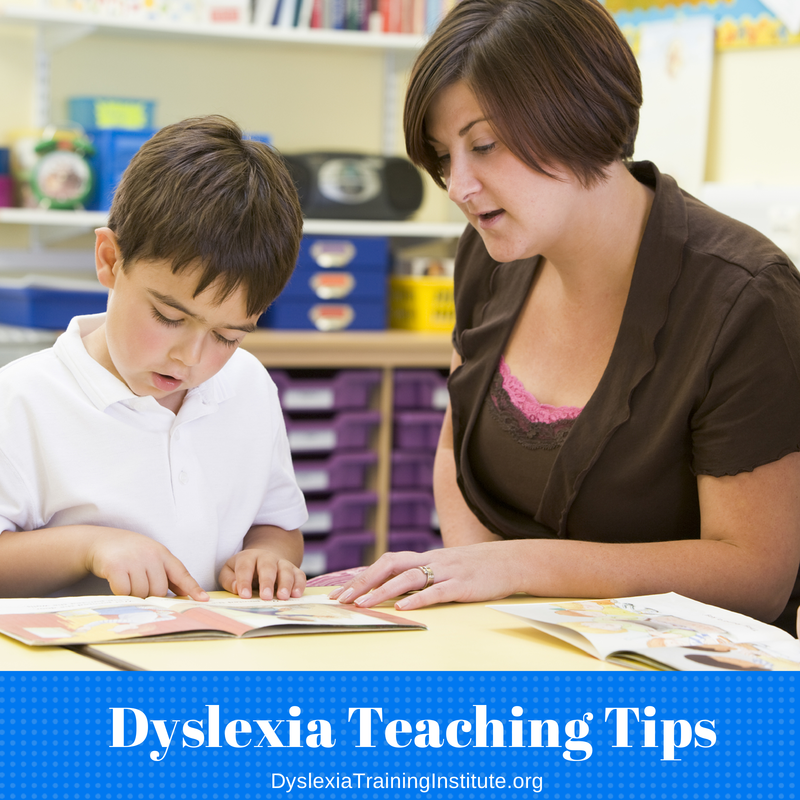
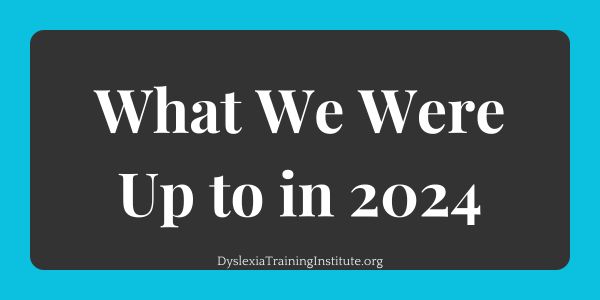
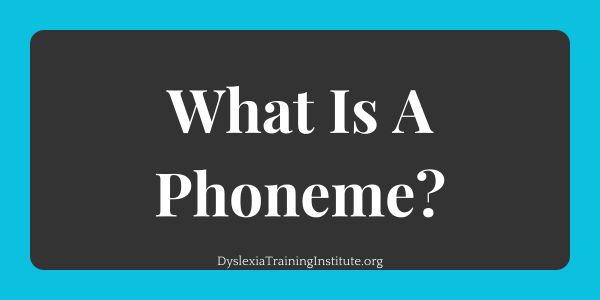
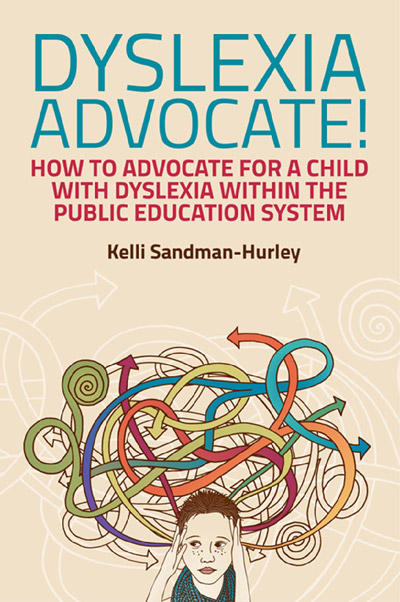
I totally agree dyslexia has been nothing but despair for me I still struggle as a 30 year old adult and I have other mental health issues mild Asperger’s and there’s not a lot of help where I’m from in Florida with dyslexia still looking for employment but dyslexia has nothing to do with the talents I already have that something separate. when you have Community you can do a lot of things but I still feel like there’s a door shut on me so I totally agree with everything you said in your blog.
This is the small minded ableist approach to understanding the difficulties that dyslexics face. Dyslexia can indeed be a gift. At the least it is completely neutral. It is the way in which a person’s brain develops, usually with strengths in some areas and trouble in others in traditional modes of education. What is not a gift and isn’t neutral is ableism – the discrimination and oppression of those who have differently wired brains and learning styles and needs.
What the people you know are facing is ableism – a lack of support for the fact they are dyslexic, not dyslexia itself. And oppression compounds. A lower class dyslexic person of color WILL struggle more than an upperclass white person who is dyslexic. Because oppression compunds! But we don’t blame the oppressed – people of color or dyslexics. We blame the opressive systems.
And your conceit that the only way to get policy makers to pay attention to treat dyslexia itself as though it is a curse is a backwards and ultimately more harmful way to approach the issue. If your students are told there is something wrong with their brains their depression and anxiety and low self esteem will only worsen. In fact that may be where a large portion of it in the students you know is coming from.
We need to move forward to understanding differences like dyslexia as a natural worthwhile state of being that is deserving of our respect and support, NOT calling fundamental parts of our population – that does indeed gives strengths when recognized – the scary monster in the closet. Your discourse is familiar in all disability communities and disabled advocates like myself know it is not helpful.
Hello Christa,
You make a very important point that “A lower class dyslexic person of color WILL struggle more than an upperclass white person who is dyslexic.”
And this too, is an important point, “We need to move forward to understanding differences like dyslexia as a natural worthwhile state of being that is deserving of our respect and support.”
But I would argue that Kelli is making a crucially important point that you have missed that is necessary for it to be possible to get where you want get to. I hope that you will take the time to see the rather long comment I posted on Part 2 of of this article. I try to clarify the point that the key obstacle that dyslexics face is an instructional one. English people live in a world in which the basic assumption that drives most literacy instruction (classroom and remedial) about our orthography is that it is a system that is MAINLY about representing the sounds of words. This is a false representation of our English spelling that results in most adults and children assuming that English is full of “exceptions”. In fact all those “sight words” that we have to memorize are completely ordered when we understand how our writing system actually works. Those exceptions should be taken as falsification of the “spelling rules” being taught. My own frame on this is that it turns out that dyslexics have a particular negative interaction with that misconstruction. Those who just see a written word and remembers how to read or spell it do not need to pause the think about how so spell “does” “sign” or “rough”. They just read or write it without having to think about the “sound-letter correspondences”. The dyslexic, on the other hand, does not have that kind of immediate access to the written word and pauses and tries to apply what they have been taught — and when they do, they get the spelling or reading wrong! I would argue that the greatest obstacle that dyslexics face is not whether or not other people think they have a gift or not. The greatest obstacle that Kelli is trying to highlight is that they suffer most when the standard instruction they receive misrepresents the writing system they are trying to learn. And this makes sense when we recognize that that instruction puts almost all the leverage for their learning on the cognitive processing (phonological processing) they have been Identified as having. When meaning and structure are brought to the process of making sense of print – everyone, but especially dyslexics – can UNDERSTAND spelling. If we highlight the fact that the word “does” is built on the base “do” and has an “-es” suffix, just like “goes” has a “go” base and an “-es” suffix, we can see the meaning connections between “do” and “does” is parallel to “go” and “goes”. What we need to tell everyone — but especially dyslexics, is what Carol Chomsky pointed out in 1970 — bases and affixes do not even have pronunciations until they are in a word. Once we start understanding the relationship between meaning structure and phonology, we can understand that the word “sign” can build the words “signal” “design” “signature” and many others – and that spelling marks that meaning connection. On of the gifts that many think dyslexics have is a capacity for lateral thinking, problem-solveing etc. That gift is leveraged for learning when we teach the actual structure of the language, and buried when we hide it.
I really recommend you read Kelli’s part two. And I hope you read my comment there and explore some of the links to the linguistic tools teachers around the world are giving themselves and their students for understanding our writing system. No matter what else we do, it makes sense to me (and there is much research to support this) that the first task we should be doing is making sure that all students receive instruction that accurately represents our writing system. Once we get to that point, I think all of us will be better able to see the gifts that dyslexics bring all of us.
Thank you Pete! To be clear, I never suggested any of the things that Crista stated I said in my blog posts. I don’t assume all lower socioeconmic people are african-american. I have never told a student they were broken or backwards. In fact, I did blame the system and not the oppressed. I encourage people to actually read what I write before they comment. I appreciate your support and I hope everyone reads your first comment as well.
Thanks, Dr. Sandman-Hurley,
Thanks for this blog post. My personal experience with my son reflects your thoughts. My son “failed” grade one in 1994. Testing showed he left 1st grade with no words, no spatial awareness, and no strengths. I taught him to read. However, for him to go from the bottom of school to graduate in the top 20% of his class, (He won an academic award for Exceptional Children in 2007) he lived on three continents- Australia, England, and the USA. If we had not moved, he would not have achieved such heights.
His extreme example highlights how difficult it can be to succeed, once a child is labeled.
Christa:
Thank you for taking the time to respond to my post. You are taking what I said out of context and/or misinterpreting what I actually said. I actually did, and do, blame the education system and more specifically the university teacher training programs. I never blamed the ‘oppressed’ and I think if you reread the post without a preconceived idea of who I am or what my thoughts are you will see what was written.
Additionally, my use of the terms low socioeconomic was not a euphemism for ‘a lower class dyslexic person of color’. The adults I wrote about were as diverse as you can get. Many different races of people can be low socioeconomic. Interestingly, one poster pointed out that it is a mistake to assume this only happens to those who struggling economically. You made it into another issue, not me.
My biggest point was that students with dyslexia will success because they ARE resilient and smart, it seems you missed those sentences as well. My observation is that those success are more likely to happen for students who are identified and supported. I have never told a student there is something wrong with them, ever. Just ask them. I am an open book. You also made that leap with no supporting evidence from what I actually wrote.
I have never once said that dyslexia is a curse, ever, not in writing, not in a presentation, and not even in personal private conversations. What I did say is that it makes my job harder at the political level to convince politicians there is an issue in the schools if people are out there saying it isn’t a problem.
Please be more careful with your criticism. In the heat of emotion sometimes leaps are made that are totally unjustified and you have done just that.
Christa, you need to go back and carefully read the article. She said nothing of the things you accuse her of.
I am I pressed by your tenacity and integrity. I agree with the gist of what you write.
As the mother of a profoundly dyslexic child I could not agree with you more. My sons dyslexia has caused me more heartache than anything else in my life. I watched my sweet, loving, smart, funny little boy grow into a sad, depressed, self-loathing and bullied child. And he had support. He went to a specific school for dyslexic children 3-6 grades. Even those things didn’t save him from feeling the slam that comes from your peers, your teachers and the entire world when you can read well enough. Happily we found help for him and with lots of therapy, mental health days, one school counselor who “got it” and a million prayers, he graduated high school in 2016. I had to fight tooth and nail for him, though, and I still cry for his future some days.
Dyslexia is not a gift. It’s just part of him. It’s no different than all the other things people are born with and they learn to cope and accommodate and advocate for themselves. They are not gifts. They just are.
Thank you for this post — it’s a reminder that can help folks understand the depth of the struggle for students and families with dyslexia. In defense of folks who perseverate on gifts, I suppose there is some value to help remove the misperception that learning disabilities like dyslexia equate to low intelligence. In that regard, I do think raising awareness about neurodiversity, while at the same time recognizing the real struggle and support that people with LD/dyslexia need, could be a valuable strategy to improve outcomes for struggling families.
The gift is that we do know how to help those with dyslexia. The problem, as you state, is that not enough people know how to help. Too few in public education know how to recognize the problem and then treat it early enough and long enough to make a difference. I was lucky, initially trained in a public school program dedicated to helping those who were reading and spelling below grade level, an O-G based program. We were not allowed to use the word dyslexia though. The answer IS to go to the legislature, the houses of higher education, to community and to organize, advocate for change. I do believe that many individuals with dyslexia find a talent and pursue it successfully. Too many do not and are lost, struggling to make a secure life for themselves.
Thank you for this!!!
Right on!! All we see on TV talk shows are the very few who have had the opportunities and support to overcome their challenges. The good news is that these success stories actually are iconic models that prove with proper diagnosis, support and training, a successful life can be achieved. Diagnosis and intervene early.
My son is dyslexic. The difference between he and I is that he was tested, diagnosed and tutored. He should have been tutored for dysgraphia too, but couldn’t afford both.
He was in a Montessori school through 6th grade, which meant I had to have him privately tested, but the school was more than willing to listen to the results. This summer he will be tested again. I contacted the public school he is in now to make sure they will read and accept the recommendations. The said they’ll look at it, but they don’t have to accept the accommodation suggested. Don’t get me wrong, these are typically very helpful people, but just the attitude. It really pisses me off. Testing is not cheap. The college board needs it so they will consider giving him extra time. He’s just finished 10th grade.
Personally I think I have expressive dyslexia. Grades in school were mostly C’s, E’s and F’s. I grew up in Scotland and according to the teachers I just didn’t work hard enough. I didn’t know how. In my 5th year of high school I began to do a bit better.
I have cried, I have argued and almost been fired advocating for my child. I am a Montessori teacher at the same school my children used to attend. I’m not perfect and neither is the school!
Hi there
I never comment on these place because of my dyslexia.
I totally agree with the above article, I’ve struggled throughout my life with my dyslexia, when growing up I used to hate it when people would say this famous person had dyslexia u could be like that.
I used to get support but a lot of the teachers I had didn’t have any idea how to teach a dyslexic person, they used to single me out from friend, this could be by sitting next to me in class or getting Frustrated with me because I didn’t understand, I used to get asked to write or read in front of class and inside i would melt but it would still happen even with my parents speaking to the school about this.
School was a bad place for me not because of my peers so much but because of some of the teachers.
I have been in the workplace and been bullied because of my writing and needing someone at times explaining things to me more than once or because of spelling mistakes or bad punctuation, it was during this time that I had another dyslexic test and they explained to my ex employer about my dyslexia.
During this test and going through this bullying that I learnt how resourceful I am with myself, my coping skills get me through a lot of sticky places unnoticed and am really quite clever with my ablilitys with what I can do. This taught me to say yes I am dyslexic and tell people ( I never told anyone and would do anything to get away with any writing or reading exercises ).
I don’t care any more about my dyslexia it is what it is, I still go to meetings for work and won’t write if I can help it but use my other abilities like being great with people and knowledge of what I do to get me through.
I am now working with people who have mental health issues and teach them life skill and coping strategies, I have spoke about my struggles in life and how I manage it now and have learnt to be who I am and laugh at my self when I can’t spell instead of getting upset.
I will never be great at organising but again that’s me and laugh at it.
I will always forget capitals letters but hay is it the end of the world.
My children who are 8 snd 6 boys. know and understand already about people using there brains differently and that mummy’s is different and understand that I can’t do maths at all but I try and struggle to read to them at night but I do and my 8 year old supports me to get the words write . The sad thing is that I dont think schools have come that far in the 20 years that I’ve left ( teacher friends will say different ).
I beleave my youngest has dyslexia I hope that I can support him to praise the good in him and learn coping skills to do what he wants in life.
I would give my dylexia back it’s not a gift but have learnt through the struggles u just have celebrate what u can do.
I know this blog was published a while ago and I have read it a few times as it pops up on my news feeds. I guess I’m feeling a bit snarky today to actually comment on this. First off I am dyslexic! I am proud of who I am today but that has not always been the case. I find the comments from the Non-dyslexic people very interesting. Sure you all can have your opinions on the matter but at the end of the day what do ACTUAL dyslexic people say about the matter? Has anyone ever stopped and actually asked a dyslexic person how they feel about this subject? What Kelli is saying is she has never met a dyslexic person who feels their dyslexia and life experiences around dyslexia was a blessing or enriched their life in some way. I know this topic can be argued from many points of view but the most import point of view is not from a non-dyslexic. Now I happen to be on kelli’s side with this one. I know many successful dyslexics and I personally know many of the ones that have written books in the past 5 years. What I do know, they are mostly all privileged white MEN, with some exceptions.
The key words in Kelli’s post for me are, “super supportive families or someone in their life who took an interest..” This is the one key factor I see in all the success stories I have seen. Now I know that their are other dyslexic adults that believe that their dyslexia has given them gifts and thats ok. They have earned the right to say that because they are dyslexic and they should have the right to speak what is true for them. I happen to not agree with this point of view for myself and that’s ok too. But what I’m sick of seeing are non-dyslexic people drive home their points and arguing over what is right and wrong for us. I see it constantly and it’s very frustrating. What I do know is Kelli has worked in this field for decades and she actually takes the time to listens to what dyslexic people are saying. Her post is spot on and I can not agree more.
I want to pose another question. Would a dyslexic person still have their said gift if they were not dyslexic? For example a person who is gifted at art would they still be gifted at art without dyslexia? There are thousands of successful artiest who are not dyslexic. What if your talents, gifts, and strengths are just innately a part of who you are, who you were created to be and not because you are dyslexic? I guess it’s that old chicken before the egg question.
I am a very social person. I can enter a room full of strangers and strike up a conversation with about anyone. I have very little fear in these situations but for much of our society this situation would case panic in them. I know this is one of my strengths. Is this because I am dyslexic or just part of my personality? I do not believe it’s because of my dyslexia. Dyslexia does not make me social. Just like dyslexia does not make my daughter a good artist, its just who she is.
So the next time non-dyslexic people start throwing their opinion around about dyslexia, try asking an actual dyslexic and get their point of view, I guarantee it’s probably very different from your non-dyslexic perspective.
Thank you for your great post. I am Dyslexic and so is my daughter. I would gladly trade being Dyslexic for being able to read and spell with easy, and so would my daughter. We are both successful adults because we have learned what we have to do to be successful, and we have worked hard to get where we are in life. It has not been easy, but it has been worth it. We would not be where we are today without the support of family, friends, and great teachers. However, I can say without a doubt that both of us would give up the ‘gift’ of Dyslexia in a minute if we could. Thanks you for speaking the truth.
There are some important points here, but not this one:
“I have put my money where my mouth is by going to my state legislature and going to Capitol Hill. I know that promoting a dyslexia sperm bank hurts those of who try to be taken seriously by policy makers.”
Here you are referring to Richards Branson’s “dyslexic sperm bank.” He is, in fact, taking a stab at a UK sperm bank that refused to take donors who have dyslexia (and other LDs).
https://www.theguardian.com/society/2015/dec/29/largest-uk-sperm-bank-turns-away-dyslexic-donors
Eugenics is a very serious matter, and relies on the myth that dyslexics are damaged in some way. Of course, we are not. Agreed? We need to bust that myth — and show the world that we can be successful in business, teaching, writing, banking, retail, cooking, architecture, making furniture (Ikea!)…you name it.
We can be successful–with support.
Perhaps you can bring that point to Capital Hill?
Good luck!
State education for people with dyslexia is (mostly) is very difficult to access because it is not properly adapted. If affluent, middle class dyslexics can be successful and confident, then all dyslexics can – that is what state education is for – to provide equality of opportunity. When children go into an environment where they are expected to succeed, and believe they can, with the proper support, it is transforming. I too have worked with dyslexic people for many years and I would say the single most important element of my work is building confidence, through helping students understand why things go wrong (it is not their fault), valuing their different and unique way of working, and through focusing on their many strengths (we all have strengths, but many dyslexics leave school believing they don’t have any). It’s difficult in school, where there is a severe lack of resources and expertise, and I admire those like the original poster who are fighting daily to make things better.